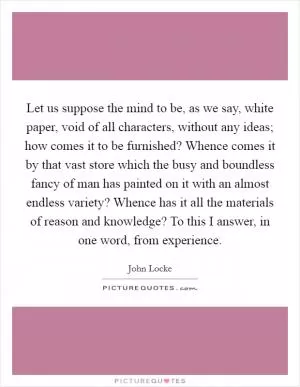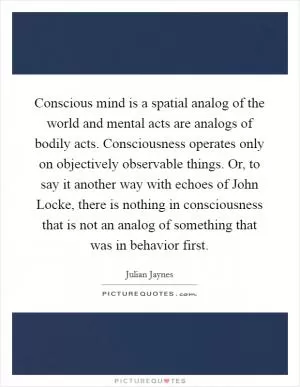Virtue is harder to be got than knowledge of the world; and, if lost in a young man, is seldom recovered

Virtue is harder to be got than knowledge of the world; and, if lost in a young man, is seldom recovered
John Locke, a prominent philosopher of the Enlightenment era, believed in the importance of virtue as a fundamental aspect of human nature. In his works, Locke often emphasized the significance of moral character and integrity in shaping an individual's behavior and decisions. The quote, "Virtue is harder to be got than knowledge of the world; and, if lost in a young man, is seldom recovered," reflects Locke's belief in the difficulty of acquiring and maintaining virtuous qualities, especially in the face of worldly temptations and influences.Locke's philosophy on virtue can be understood in the context of his broader views on human nature and the formation of character. He believed that individuals are born as blank slates, or tabula rasa, and that their experiences and interactions with the world shape their beliefs, values, and behaviors. According to Locke, virtue is not innate but must be cultivated through education, self-reflection, and moral guidance. This process of moral development is challenging and requires constant effort and vigilance to resist the corrupting influences of society.












 Friendship Quotes
Friendship Quotes Love Quotes
Love Quotes Life Quotes
Life Quotes Funny Quotes
Funny Quotes Motivational Quotes
Motivational Quotes Inspirational Quotes
Inspirational Quotes